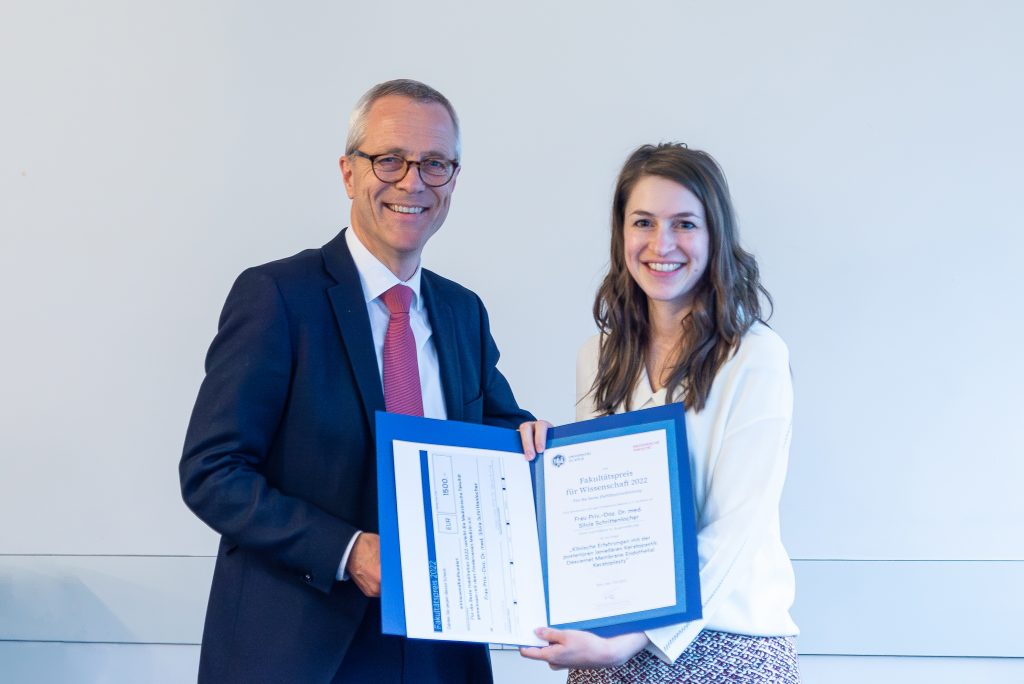Research Program
Immune processes, inflammation and pathological (lymph)angiogenesis are important components of various eye diseases that can lead to blindness. These include graft rejection after corneal transplantation, dry eye and allergic eye disease, ocular tumors, uveitis, and age-related macular degeneration (AMD). Extensive preliminary work of this research unit showed that abnormal lymphangiogenesis and reactive macrophages/microglial cells are essential triggers and mediators of inflammatory reactions in these eye diseases. Our hypothesis therefore is that by selective modulation of ocular (lymph)angiogenesis and cellular immunity (especially microglia and macrophages) novel innovative therapeutic approaches can be developed to target these heterogeneous diseases.
The research unit has the core objective of gaining a deeper understanding of these molecular processes and to develop new diagnostic and treatment options for common blinding eye diseases through intensive collaboration between specialized research groups in the areas of (lymph)angiogenesis research, inflammatory macrophages, microglial physiology, and uveitis research.
Three thematic areas
lymphatic vessels
Lymphatic vessels are an important part of the “afferent” arm of inflammatory and immune responses. Via lymphatic vessels, antigen-presenting cells and antigens from the periphery enter the regional lymph nodes to induce local immune responses.
microglia
Microglia-mediated retinal immune processes are an early occurring pathophysiological hallmark of hereditary retinal dystrophies, age-related macular degeneration, diabetic retinopathy and glaucoma.
macrophages
Macrophages along with resident microglial cells of the retina appear to play a key role in all ocular inflammatory processes to be studied here. Thus, certain polarized phenotypes of macrophages mesh intimately with pathological lymphangiogenesis.
Background and specific aims
Background
The eye is the most important human sensory organ with which we perceive 90 percent of all information in our environment. The optical transparency as well as a structural and functional integrity of the eye is essential for good vision.
Specific aims
The general goal of the FOR 2240 is the concerted investigation of the so far still poorly understood pathogenesis of aberrant immune processes of the eye and the development of innovative new diagnostic and therapeutic concepts.
News
Links
The research unit FOR 2240 is embedded in various institutional contexts and has close cooperative ties to various other projects and networks.




